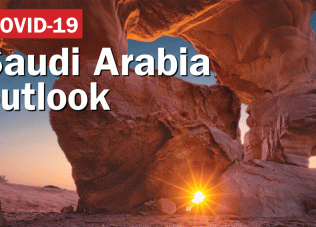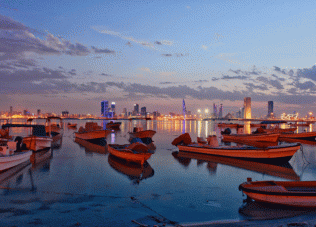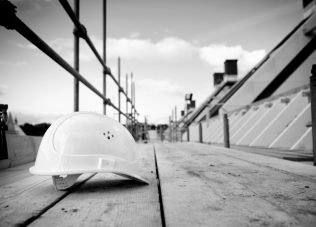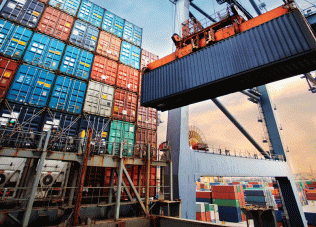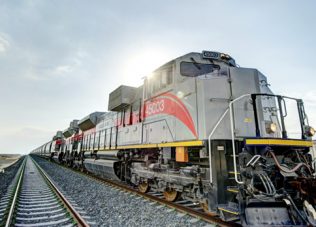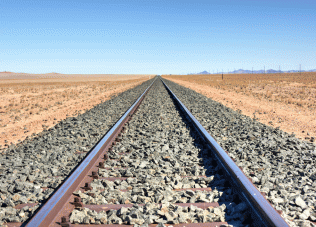North Africa is a challenging market with huge potential

The combined value of all projects planned or under way in the five North African countries is about $739bn
The signing on 11 December 2017 of an agreement between Egypt and Russia for the deal to build the $21bn El-Dabaa nuclear power plant in Egypt dramatically changed the shape of the region’s projects market in 2017.
The agreement took the combined value of all deals let in Egypt in 2017 to about $38bn, making the North African state the second-biggest projects market in the Middle East and North Africa (Mena) region in 2017 in terms of the value of contracts awarded. Only the UAE market, with about $46bn of contracts signed, was larger in 2017.
The scale of the Egyptian nuclear plant, as well as the one-off nature of a major nuclear power project, means the totals for 2017 are likely to prove anomalous in terms of long-term trends. But at a time when project opportunities in the GCC are stuttering, it provides a useful reminder that the North African market can offer exciting prospects, so long as other factors such as government export support is available.

Without the advantages of widespread, low-cost hydrocarbons reserves to underpin public spending, the five markets of North Africa – Egypt, Libya, Tunisia, Algeria and Morocco – have been unable to match the seemingly endless supply of major project opportunities as the GCC has done over the past two decades.
About $154bn-worth of contracts were awarded across the five North African markets in the five years from 2012 to 2016, with an average rate of about $31bn of awards a year. This is about 20 per cent of the $760bn of deals let in the GCC over the same five-year period, which averaged about $152bn of awards a year. In the 10 years from 2007 to 2016, about $30bn of contracts were awarded every year across North Africa. The anomalous 2017 saw North Africa awards spike at about $42.5bn, compared with about $99bn in the GCC.
Projects pipeline
Overall, the combined value of all projects planned or under way in the five North African countries is about $739bn. Egypt is the biggest single country, with about $461bn of projects planned or under way – about 62 per cent of the overall North African market. At $192bn, or 26 per cent, Algeria is North Africa’s second-biggest market.
By sector, power schemes account for the biggest share of projects planned or under way in the North African projects market, with electricity schemes making up 30 per cent of the region’s projects pipeline. The same day that Cairo signed the deals for its multibillion-dollar nuclear project, Libya awarded an $820m contract to Germany’s Siemens to boost its war-ravaged electricity infrastructure. Investment in North Africa’s power sector will continue to rise in the coming years as utilities attempt to ensure capacity keeps up with rapid population and industrial growth.
The transport and construction sectors account for 21 and 25 per cent of North Africa’s market respectively, with key projects scheduled for award in 2018. These include lines 3 and 4 of the Casa tramway in Morocco and the first phase of the fourth line of the Cairo Metro.
The drivers for infrastructure investment in North Africa are numerous, with population increases and a growing middle-class raising demand for utilities, transport links and social infrastructure.

The rising demand for power is also having a major impact on investment in the hydrocarbons sector, with Egypt and Algeria stepping up exploration of reserves and Morocco planning a $4.6bn scheme to import liquefied natural gas to meet its energy needs. The drive for additional energy is resulting in North African states aggressively pursuing the development of renewable energy to boost capacity and enhance security.
In addition, the importance of the Suez Canal as a trade corridor for Asia, Europe and Africa, and close links to consumer and energy markets in Europe will continue to offer opportunities for the industrial and logistics sectors.
However, significant challenges remain to the realisation of the North African projects market’s potential. High levels of unemployment and poverty, together with weak finances and high levels of public debt, mean it is imperative governments ensure barriers to business are removed and that multilateral banks and private investors are incentivised to support development programmes.

